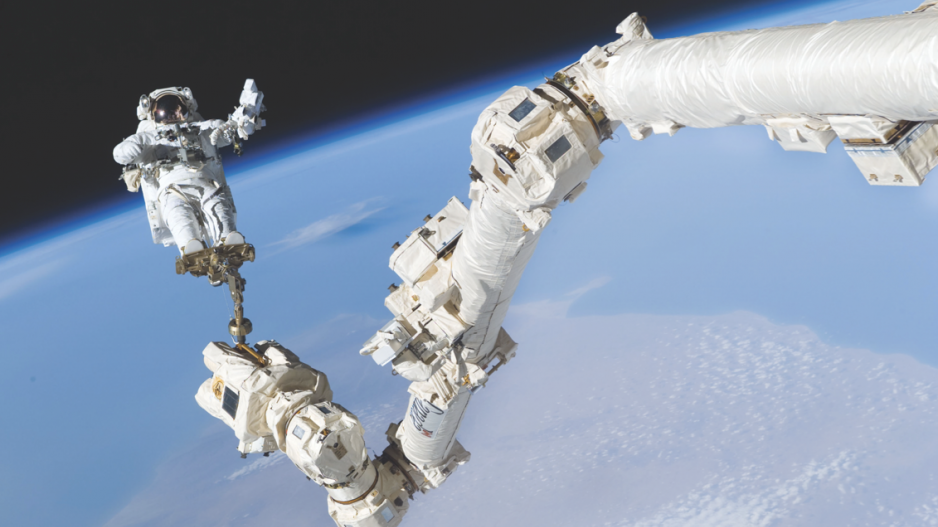A scant quarter-century ago, MacDonald, Dettwiler and Associates Ltd. (TSX: MDA) was a seed investor in DigitalGlobe (NYSE:DGI), a Colorado-based satellite imaging company known for providing Google Maps with its high-resolution pictures of Earth.
Flash forward to 2017 and the Canadarm-maker’s $4.7 billion acquisition of DigitalGlobe is not unlike an expert gardener witnessing its long-cultivated orchid bloom.
“There is such a close, symbiotic relationship between the two companies. It’s incredible,” MDA chief financial officer Anil Wirasekara said in a phone interview from the aerospace company’s downtown Vancouver headquarters.
“We’re leaders in manufacturing satellites and building satellites. … And they’re leaders in building optical data. So when you put the two companies together we have this end-to-end capability that is unlike anyone else in the industry.”
The acquisition, which sees MDA paying an equity value of $3.1 billion while taking on
$1.6 billion in debt, also means further expansion of the Canadian firm’s U.S.-based workforce.
When the deal closes in 2017’s second half, MDA will have 1,800 employees in Canada and 4,600 in the U.S. That includes CEO Howard Lance, who’s been based in San Francisco since joining MDA in May 2016.
In fiscal 2016, MDA revenue reached $2.1 billion. Net earnings were $139.6 million, down slightly from 2015’s $142.8 million.
It would appear MDA is ripe for acquisition itself. But it was nearly a decade ago when Ottawa blocked the sale of MDA’s space division to American buyer Alliant Techsystems Inc. after it failed Industry Canada’s net benefit test. The test looks at factors including whether there will be a Canadian headquarters or ensuing job cuts.
The former head of the Canadian Space Agency, Marc Garneau, also voiced concerns in 2008 that the sale would result in handing over taxpayer-funded technology to a foreign company.
The federal government was MDA’s single largest customer in 2016, accounting for $282 million in revenue.
Aidan Vining, a professor at Simon Fraser University’s Beedie School of Business who specializes in business-government relations, said the Canadian government would likely take notice if another foreign takeover were in store.
“But it’s not because of the [aerospace] industry per se. It’s because of the complementary assets,” he said. “The fact that you’ve got a headquarters, you tend to have a lot of them, you tend to have big financial institutions, you tend to have a big number of accountants, lawyers, these are all professions that matter both politically and economically.”
Vining added that there aren’t many convincing theories as to why governments block some foreign acquisitions and approve others.
“If it becomes a political issue, they tend to discourage it. They go with the votes,” Vining said. “The big issue is location related to employment and complementary assets, and people working in those, is different from share ownership, and that is largely untracked.”
Vining recently completed a study tracking share ownership of the Potash Corp. of Saskatchewan Inc. (TSX:POT) – an exercise that proved incredibly tricky.
“There aren’t registries. You try and go and find who owns the shares of MacDonald Dettwiler, you’ll find it very difficult to find out, unless it’s concentrated.”
Wirasekara told Business in Vancouver that roughly 90% of MDA’s shareholders are Canadian, and the company has no plans to move despite continued expansion south of the border.
“We have a huge presence in the U.S. because the U.S. is by far the biggest test market in the world,” he said. “If our business in the U.S. grows, the growth in the U.S. is going to trickle over to Canada.”
The main beneficiaries, Wirasekara said, are the B.C. offices, where much of MDA’s software is built; Montreal, which specializes in electronics; and Brampton, which specializes in robotics.
“Our goal is to increase our presence in Canada, increase our employees in Canada.” •




